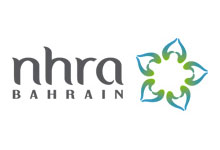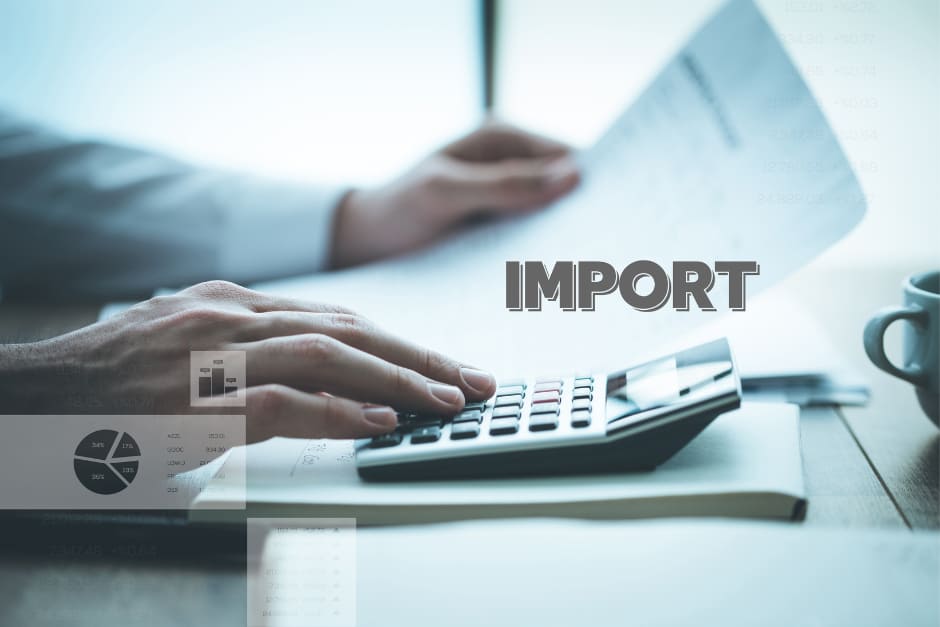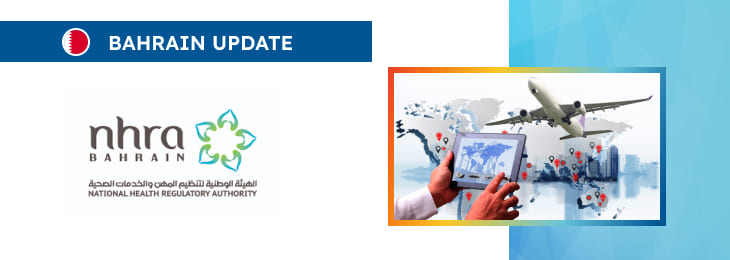The article highlights the key points related to Bahrain’s legal framework for medical device importation.

Table of Contents
The NHRA, Bahrain’s regulating authority in the sphere of medical devices, has published a guidance document dedicated to importation requirements as set forth under the applicable legislation. The document provides an overview of the relevant legislation, as well as additional clarifications and recommendations to be taken into consideration by the parties involved in order to ensure compliance with the relevant regulatory requirements.
At the same time, the authority reserves the right to make changes to the guidance and recommendations provided, should it be reasonably necessary to reflect corresponding amendments to the underlying legislation.
Terms and Definitions
First of all, the document provides definitions of the most important terms and concepts used in the context of importation requirements for medical devices including the following ones:
- Medical Device: A medical device refers to any instrument, apparatus, implement, machine, appliance, implant, reagent for in vitro use, software, material, or any similar or related article intended by the manufacturer to be used alone or in combination for human beings. These devices do not achieve their primary intended action by pharmacological, immunological, or metabolic means but may be assisted in their function by such means.
- OFOQ is a web-based software platform developed by the Customs Affairs – Ministry of Interior (MOI) in Bahrain. It allows governmental sectors to grant pre-approvals for shipment requests submitted by importers. This system is designed to enhance the monitoring and control of all shipments entering the Kingdom of Bahrain through its ports.

Regulatory Background
In accordance with Decision (48) 2020, Article (7), medical devices and products must only be used in healthcare facilities licensed by the relevant Authority. The manufacture, introduction, or use of any medical device or product in the Kingdom of Bahrain is prohibited without registration with the Authority and obtaining written permission for marketing.
Additionally, the transfer, resale, disposal, or export of any medical device or product requires written approval from the Authority. This guideline outlines the process and requirements for obtaining pre-approval for the importation of medical devices through the OFOQ system.
As of 2016, all medical devices with HS codes listed under ministry code 2251 (NHRA medical devices) must possess an online license to be cleared by customs. These devices must be pre-approved by submitting the necessary documents via the OFOQ system.
General Rules
The document further outlines the key regulatory requirements, namely:
- Regulation Scope: NHRA primarily regulates the importation of Class II and III medical devices, which are mapped to specific HS codes listed on the NHRA website.
- Authorized Representative: Importation must be conducted through an authorized representative (AR) from the legal manufacturer.
- Scope of Importation: ARs are allowed to import only within their registered scope, and healthcare facilities may import solely for personal use and within their service scope.
- Commercial Registration: Authorized representatives must hold a Commercial Registration (CR) with the activity code 4659, which covers the sale, trade, and importation of medical devices.
- Pre-Approval Submission: Requests for importation must be submitted on the OFOQ platform before the item is shipped to obtain pre-approval before its arrival at Bahrain port.
- Additional Document Requests: NHRA may require additional documents not specified in this guideline for safety and quality assurance.
- Installation and Marketing: All imported professional medical devices must be installed or marketed to a licensed healthcare facility.
- Prohibition of Used Devices: The importation of used or refurbished medical devices is strictly prohibited.
- Sample Requests: In some cases, approval may be withheld until sealed samples are provided to NHRA for evaluation, matching the provided documents to clear the shipment.
- Quality Assurance: Certifying bodies issuing quality assurance certificates must be recognized by the EU for CE certificates and the IAF for ISO certificates.
- Document Authenticity: The applicant is responsible for ensuring all submitted documents are authentic and verified; failure to do so may result in CR deactivation.
- Partial Approvals: In cases where part of a shipment is approved due to non-compliance with international standards, the importer may contact customs to clear the approved devices and either export or destroy the rejected items.
- Cold Chain Products: For cold chain products, such as those requiring storage at 2-8°C, a temperature data logger must be provided to NHRA within 24 hours of receiving the shipment to verify storage conditions. Conditional pre-approval may be granted, provided the importer does not distribute the devices until NHRA has approved the data logger after the shipment’s arrival.
Requirements
According to the guidance, in order to obtain pre-approval, specific documents must be submitted through the OFOQ system.
These requirements include:
- Invoice: The invoice must include the HS code, manufacturer name, and country of origin.
- Authorized Representative Certificate: Proof of authorization for the representative submitting the request.
- NHRA Registration License: If the device is not yet registered with NHRA, additional documentation is required, such as:
- Product Quality Documents: For example, a USFDA Certificate to Foreign Government (CFG) or CE certification.
- Quality Management System: ISO 13485 covering the invoiced site (Country of Origin).
- Certificate Verification: All certificates provided must be verified, with proof of verification included in the application.
- Catalog: The catalog should contain the product code or reference number of the product(s) mentioned in the invoice.
- Device Labeling: The label of the medical device must include the name of the legal manufacturer.
Each document must be uploaded individually in PDF format and labeled according to the checklist. Documents must be in Arabic or English, organized, searchable, and unambiguous.
Special Cases
It is also important to mention that for some categories of products, additional requirements could be applied.
NHRA may require additional documentation in certain cases, including:
- Different Legal and Physical Manufacturers: If the legal manufacturer and physical manufacturer differ, a quality assurance certificate (CE) or FDA certificate should be provided for the legal manufacturer, and an ISO 13485 certificate should be provided for the physical manufacturer. A relationship letter between the two entities, issued within the last five years, must also be provided.
- Class I Medical Devices: For some Class I medical devices, a Declaration of Conformity (DOC) for the legal manufacturer and ISO 13485 for the physical manufacturer may be required.
- Verification Issues: If the online verification database does not show the site or scope used in the application, verification must be conducted via email.
- Third-Party Invoices: If the invoice is issued by a third party, an authorization letter from the legal manufacturer to the invoice issuer is required, with a validity of up to five years.
- Contact Lenses, Surgical Instruments, or NHRA Requests: Sealed samples from customs must be provided.
- Single-Use Medical Devices: A classification letter from the NHRA MDR Department stating that the product is classified as a medical device is necessary.
- HS Codes Starting with Specific Numbers: For products under HS codes beginning with 28, 29, 30, 32, 33, 38, or 84, an authorization letter from the manufacturer to the distributor is required.
- Repair and Return Shipments: A signed detailed service report of the maintenance performed on the device, issued by the legal manufacturer or an authorized entity, must be provided.
Conclusion
In summary, the present guidance covers the essential details and procedural requirements for the importation of medical devices into Bahrain, emphasizing the importance of ensuring compliance in order to streamline the relevant procedures and facilitate access to the market.
How Can RegDesk Help?
RegDesk is an AI-powered Regulatory Information Management System (RIMS) designed to simplify global compliance for medical device companies. With regulatory intelligence covering 120+ markets, RegDesk helps you prepare and publish global submissions, manage standards, conduct impact assessments, and stay ahead of regulatory changes all from a single, centralized platform. Expanding into new markets has never been easier.

